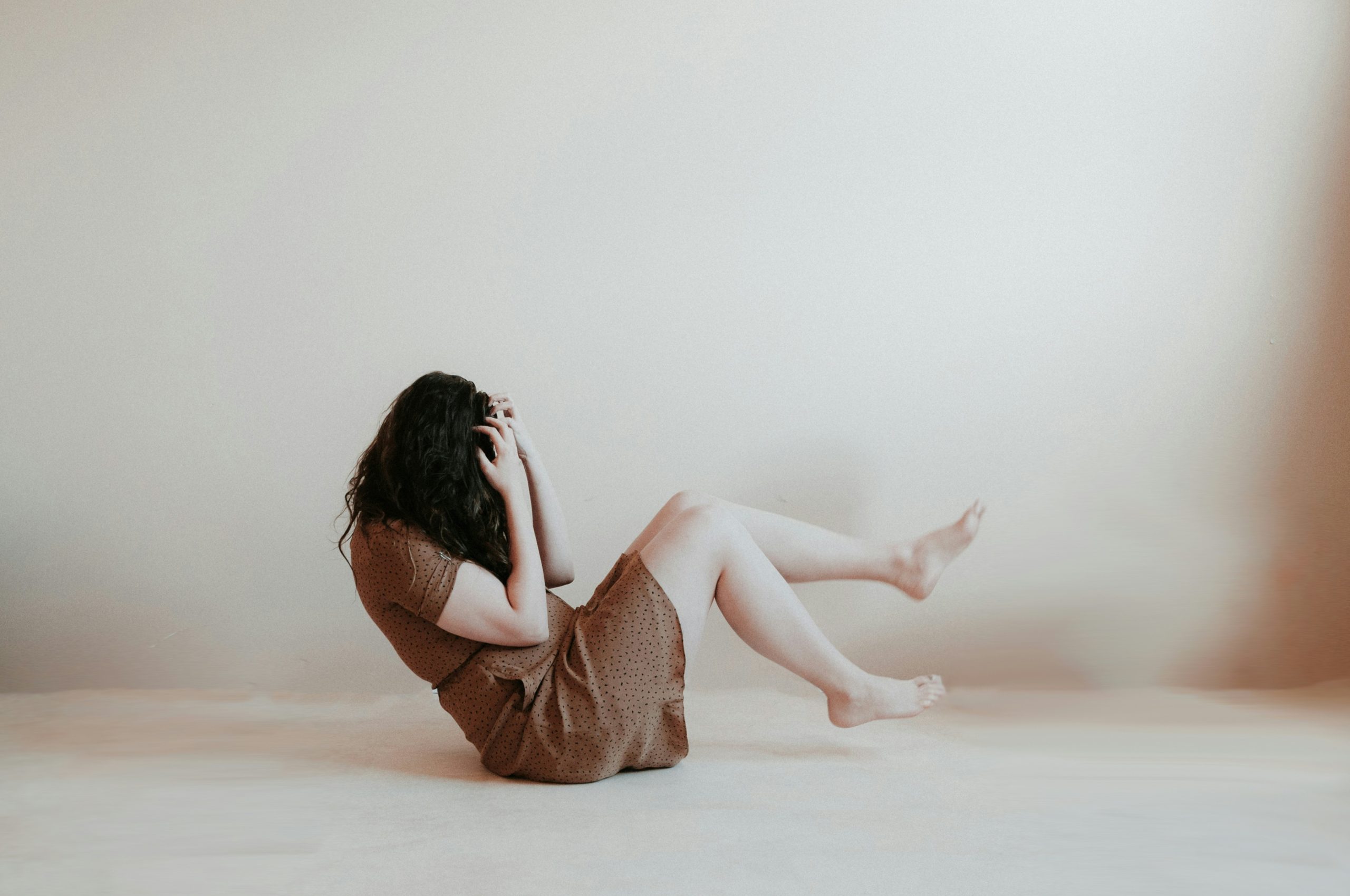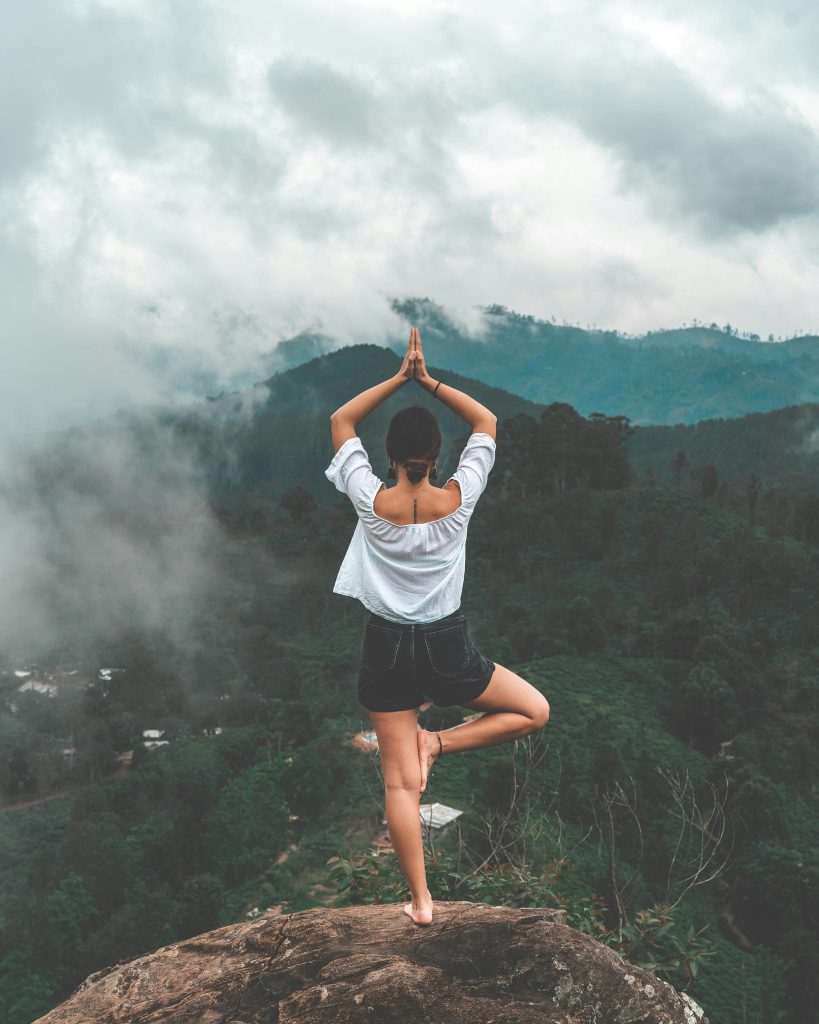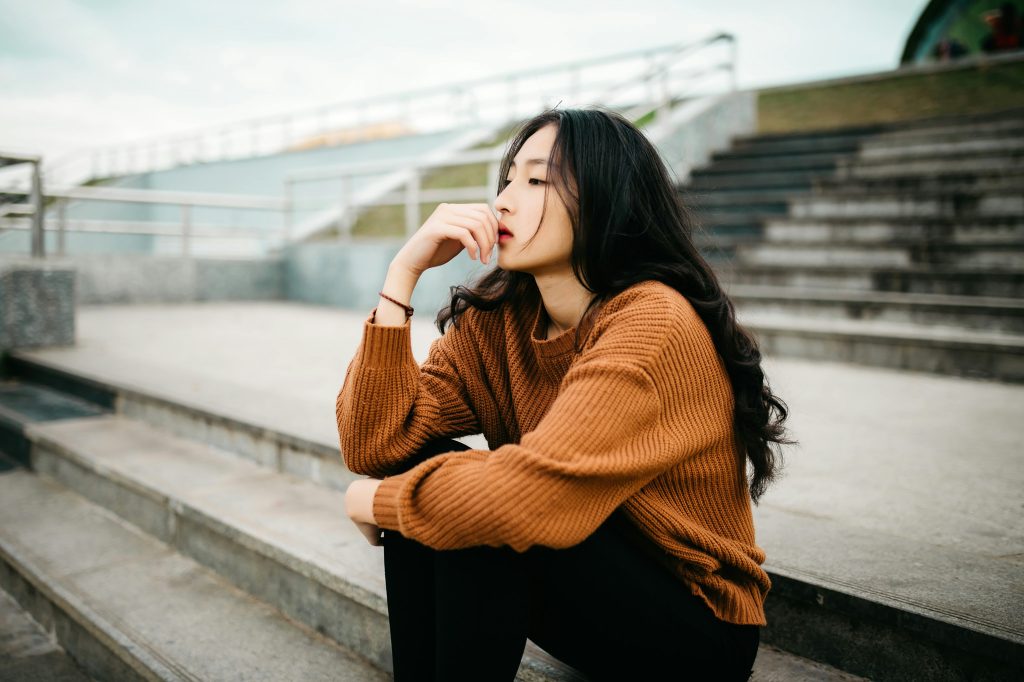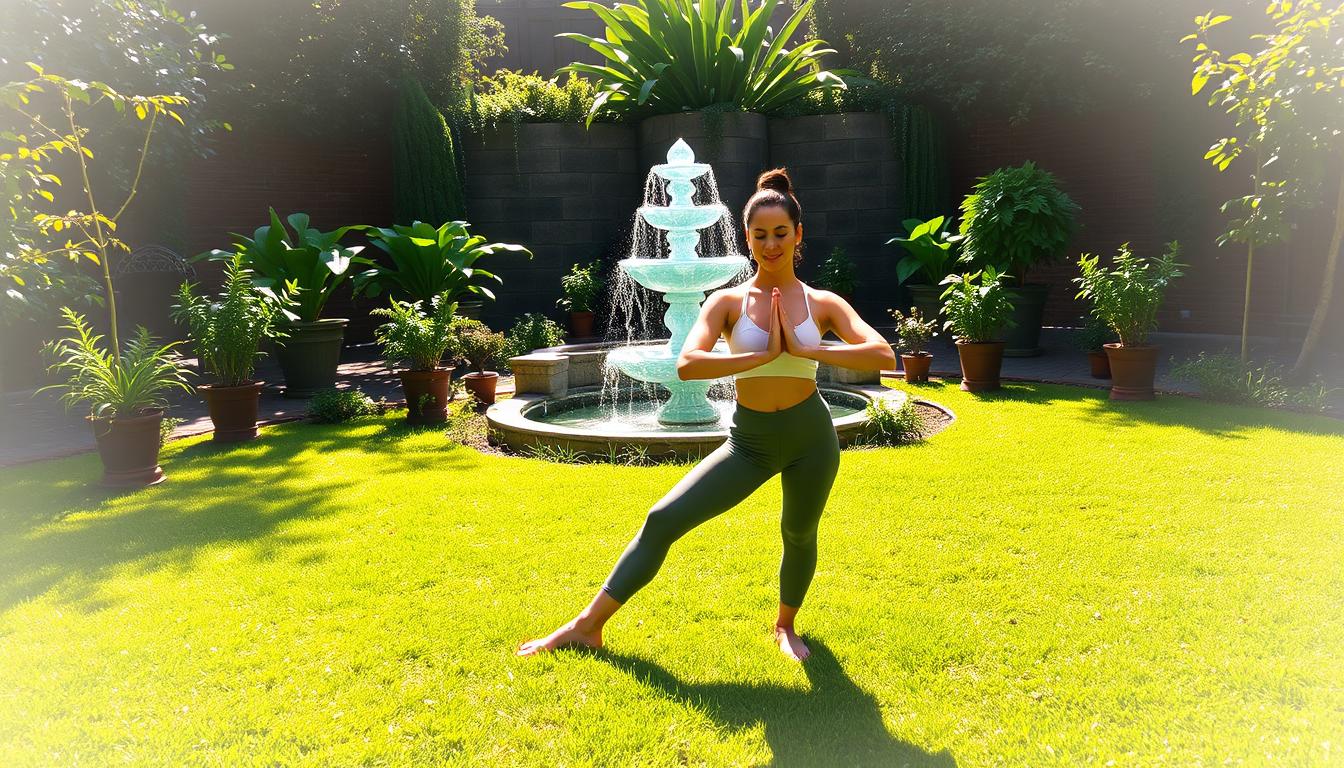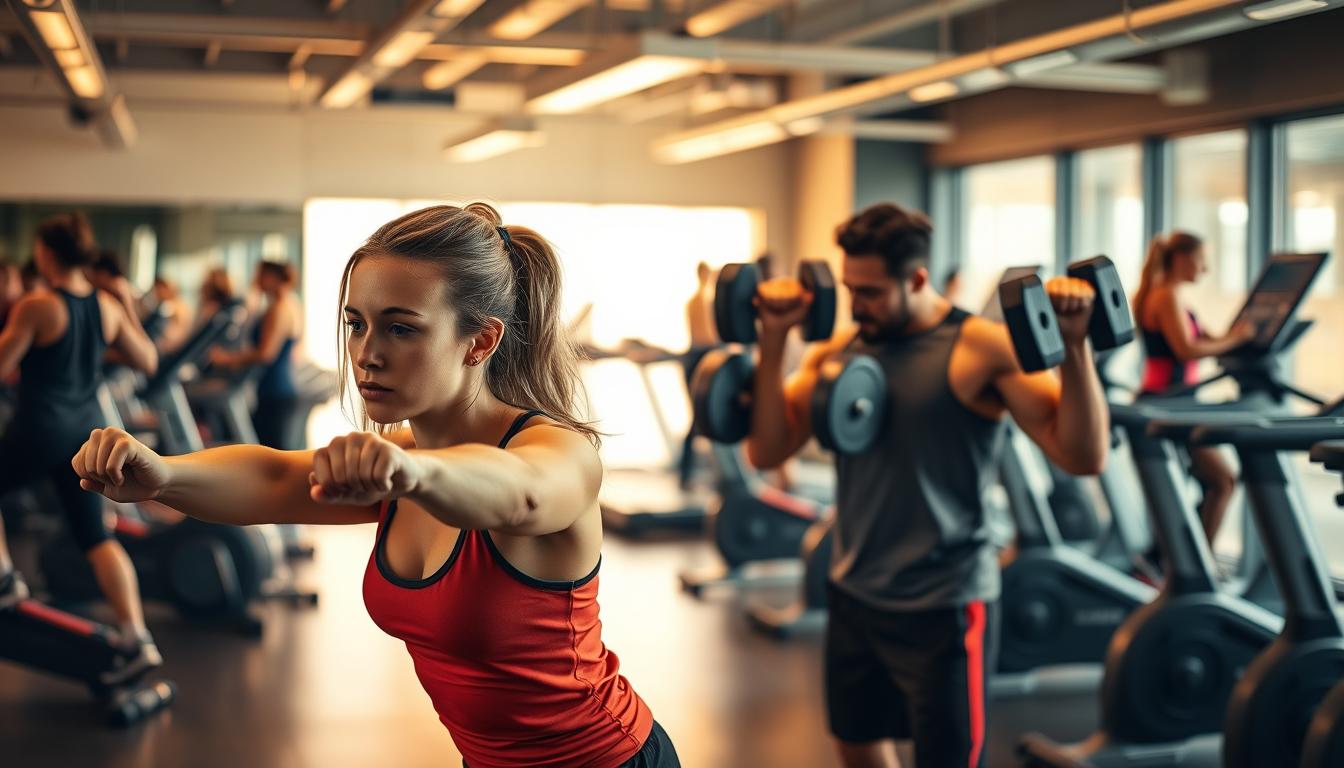Women’s mental health deeply feels the effects of anxiety disorders. Anxiety changes not just feelings but also how bodily sensations are sensed. Knowing these changes helps us grasp anxiety’s broad effects on health. This understanding aids in spotting and managing the issue easier.
Anxiety and feeling sensations connect in complex ways. Women often face physical symptoms without clear causes, blurring the mind-body link. This shift in sensation perception highlights the need for more awareness. It also calls for a deeper approach to treating women’s anxiety.
Key Takeaways
- Anxiety can significantly alter how women perceive bodily sensations.
- Understanding these effects is essential for improving emotional well-being.
- Addressing anxiety disorders requires a multifaceted approach.
- Recognition and awareness are key to managing anxiety effectively.
- Improving sensation perception can enhance overall women’s mental health.
Anxiety and Its Impact on Women’s Health
Understanding how anxiety affects women’s health is key. Anxiety isn’t just about worry; it’s a serious condition. It deeply affects both mind and body. We’ll explore anxiety’s nature, how common it is in women, and its health effects.
Understanding Anxiety
Anxiety is a state filled with worry, nervousness, or fear. It comes in forms like generalized anxiety disorder (GAD), panic disorders, and social phobia. People with anxiety are always on alert, which is tiring. Anxiety’s impact on women’s health is big, hitting both mental and physical health.
Prevalence Among Women
Women face anxiety more than men do. Studies show they’re twice as likely to get an anxiety disorder. Reasons include hormonal changes, societal stress, and more experiences with trauma and abuse. Knowing these factors helps create better ways to fight anxiety’s mental health effects.
Short and Long-Term Health Effects
Anxiety’s short-term effects include irritability, fatigue, and trouble focusing. But long-term, it’s even more serious. Constant stress can harm heart health and weaken the immune system. This makes people prone to getting sick. Plus, long-lasting anxiety can worsen mental conditions like depression. Breaking this cycle is hard.
What are Bodily Sensations?
Bodily sensations are the feelings inside your body. They come in various forms. Some are as gentle as the beating of your excited heart. Others, like muscle cramps, are sharp and intense. It’s vital to recognize and understand these sensations for good health.
Definition of Bodily Sensations
Bodily sensations are internal feelings and signals your body shares. They’re shaped by your feelings and thoughts. Getting to know these sensations means you can understand where they come from and why.
Common Examples of Bodily Sensations
Here are some typical bodily sensations:
- Heartbeat
- Muscle tension
- Stomach growling
- Sweating
- Shivering
The Role of Mental Health in Bodily Sensations
Your mental state greatly affects how you feel physically. For example, anxiety can make you more aware of your body’s signals. This is called interoceptive sensitivity. This awareness can cause anxiety and discomfort to feed off each other.
Mental Health and Emotional Health Connection
The link between mental and emotional health affects our physical well-being. This link shows through symptoms that come up when we’re upset. To stay totally healthy, it’s key to understand how our mind and body work together.
The Mind-Body Connection
The mind-body connection looks at how our thoughts and feelings affect our body. When we’re really stressed or sad, we might get sick. This sickness comes from our mental and emotional stress. It shows how our mind affects our health.
How Emotions Influence Physical Health
Our emotions affect our body’s health. Being anxious or sad for a long time can make us physically ill. Doctors study how the mind affects the body, known as psychosomatic medicine. They say keeping our emotions healthy helps keep our body healthy. Understanding our feelings can help avoid negative effects on our body. This makes us live a balanced and healthier life.
Physical Symptoms of Anxiety in Women
Women dealing with anxiety often face many physical symptoms. These issues can greatly disrupt their everyday life. It’s vital we understand these symptoms to help improve their health and happiness.
Common Physical Symptoms
Many different signs show up in women feeling anxious, like:
- Heart palpitations
- Fatigue
- Muscle tension
- Headaches
- Gastrointestinal issues
- Dizziness
- Insomnia
Such symptoms can be tough to handle, messing with routine tasks. They lead to more stress, both mentally and physically.
Long-term Physical Health Impact
Lasting anxiety can push the body into a constant stress mode. This ongoing stress is bad news, raising the risk of serious health problems. Diseases like heart issues and diabetes may become more likely.
Being aware of these dangers and tackling anxiety swiftly is key. It’s crucial to manage stress well. Doing so through therapy and lifestyle tweaks can lead to a healthier life.
Anxiety Linked to Reduced Insight into Bodily Sensations—Especially in Women
Anxiety can make it hard for women to understand their bodily sensations. This issue is key, especially in women. Cognitive and emotional factors play a big role here.
Cognitive and Emotional Factors
Anxiety messes with focus and fills heads with worries. This leads to reduced bodily awareness. Women feel these effects more because of their complex thoughts and feelings. This makes it hard for them to notice what their body is telling them.
Significance of Awareness
Knowing how anxiety affects body perception is crucial for women’s health. By understanding anxiety sensitivity and its effects, women can better sense their body’s signals. This helps them manage both their mental and physical well-being better.
| Factors | Impact on Bodily Sensations |
|---|---|
| Cognitive Disruptions | Inhibits concentration, leading to reduced bodily awareness |
| Emotional Factors | Heightened anxiety sensitivity, causing misinterpretations |
| Awareness Significance | Promotes better self-perception and health management |
Gender Differences in Anxiety Perception
Exploring how men and women see and feel anxiety differently is important. Social roles and what’s expected of different genders play a big part. But, we also have to look at how our bodies work differently, like hormones. All these things together make men’s and women’s anxiety experiences not the same.
Exploring the Science
Studies show women often say they feel more anxious than men. This is tied to many things like genes and where or how we live. The way men’s and women’s brains work also adds to why they feel anxiety differently.
Hormonal Influences
Research finds that hormones play a big part in anxiety. Women’s hormone levels change a lot with periods, having a baby, or menopause. These changes can make anxiety feel stronger. How estrogen and progesterone drive our moods is key in understanding this difference in anxiety.
It’s really important to remember these differences when figuring out how to help people with anxiety. Knowing about hormones and biology can lead to better, more specific help for everyone.
The Psychological Impact of Anxiety
Anxiety deeply impacts how you feel and think, leading to psychological distress. It shows up as emotional disorders like depression or generalized anxiety disorder. This affects how good your life is.
It also messes with how you think, making it hard to make decisions or solve problems. This comes with behavior changes too. You might feel more irritable, restless, and find it hard to focus.
The long-term effects of psychological distress from anxiety can lead to worse emotional disorders. It’s important to know how anxiety affects you. This helps in getting help early and managing it well.
How Women Can Improve Body Sensation Awareness
Boosting body sensation awareness is key to better stress control and feeling good overall. By using the right methods, you can strengthen your bond with your body and ease anxiety.
Mindfulness Techniques
Mindfulness training is a top method for improving awareness of body sensations. Practices like meditation and mindful breathing focus your mind on now, letting you spot small body changes. Body scans are a technique for paying close attention to different body areas, increasing interoceptive awareness.
Yoga and tai chi are also great for understanding your body better and reducing anxiety. They mix careful movements with deep breathing, benefiting both body and mind.
Cognitive Behavioral Strategies
CBT for anxiety greatly boosts awareness of body sensations. It involves finding and fighting negative thoughts that cause anxiety. Reimagining these thoughts helps lessen their effect on your body.
Progressive muscle relaxation is a CBT method that involves tightening and then relaxing muscles. This process helps you feel stress and anxiety physically, boosting interoceptive awareness. Journaling and restructuring thoughts also improve how you notice and understand body sensations.
- Mindfulness TrainingMeditation
- Body Scans
- Yoga
- Tai Chi
- CBT for AnxietyProgressive Muscle Relaxation
- Journaling
- Cognitive Restructuring
Professional Treatment Options
When it comes to treating anxiety, it’s key to tailor it to the individual. Mental health experts can craft a detailed plan. This plan will include therapy types and possible medications to address anxiety fully.
Therapeutic Interventions
There are effective therapies for anxiety. Cognitive Behavioral Therapy (CBT) is a popular choice. It tackles bad thought patterns to lessen anxiety symptoms.
There’s also Dialectical Behavior Therapy (DBT), focusing on controlling emotions and being mindful. Exposure Therapy allows people to face and handle their fears safely.
Medication and Alternative Therapies
Medication is often key for anxiety treatment. Drugs like SSRIs and benzodiazepines help manage the symptoms. It’s vital to partner with mental health pros to get the medication and dose just right.
Besides pills, alternative treatments are also helpful. Practices such as acupuncture, yoga, and meditation can boost traditional therapy. They add a more whole-person approach to treating anxiety.
| Therapy Type | Benefits |
|---|---|
| Cognitive Behavioral Therapy (CBT) | Helps change negative thought patterns |
| Dialectical Behavior Therapy (DBT) | Improves emotional regulation and mindfulness |
| Exposure Therapy | Confronts and manages fears |
| Pharmacotherapy | Manages symptoms with medications like SSRIs |
| Alternative Therapies | Includes acupuncture, yoga, and meditation |
Lifestyle Changes to Alleviate Anxiety
Living healthier can greatly lower anxiety. Regular workouts and smart food choices boost your mind and body. Here are top life changes to manage anxiety.
Exercise and Physical Activity
Regular exercise can dramatically cut anxiety. Activities like fast walking, yoga, or lifting weights cheer you up by releasing endorphins. Aim for 30 minutes of activity most days.
For lowering anxiety, you might want to try:
- Cardiovascular exercises: Running, biking, or swimming
- Strength training: Lifting weights or exercises using your body weight
- Mind-body exercises: Yoga, pilates, or tai chi
Adding these to your day can boost your health, sleep, and stress management.
Dietary Considerations
What you eat is key for controlling anxiety. A nutritious diet keeps your brain and body healthy. Some foods help with anxiety, while others can make it worse.
| Foods to Include | Foods to Avoid |
|---|---|
| Leafy greens, oily fish, nuts, and seeds | Processed snacks, sugary foods, drinks with a lot of caffeine |
| Berries, avocados, whole grains, yogurt | Booze, greasy food, snacks with too much salt |
Stick to a balanced diet for a stable mood and lower anxiety. Focus on your *nutrition* to keep your body and brain feeling good.
Building Emotional Resilience
It’s key to build emotional resilience to deal well with anxiety. By using emotional support and stress-lowering tactics, you can boost your well-being and mental health.
Stress Management Techniques
Using good stress management techniques can really help you handle anxiety better. Some top methods include:
- Mindfulness Meditation: Being mindful helps you stay in the moment and lessens stress.
- Physical Exercise: Staying active is a strong method for controlling stress and improving mood.
- Deep Breathing Exercises: Breathing deeply can calm your nerves.
Support Networks
Strong support networks are crucial for emotional support. Connecting with friends, family, and groups gives you comfort and good advice. Ways to create and keep strong networks include:
- Reach Out: Always share your feelings and seek help when you need it.
- Join Support Groups: Meeting others with similar issues can offer emotional support.
- Stay Connected: Keeping in touch with loved ones helps build a feeling of community and belonging.
Mixing these anxiety coping and stress reduction methods in your life can strengthen your emotional resilience. This prepares you to better handle the good and bad times in life.
The Role of Education and Awareness
Mental health literacy is key to tackling anxiety and improving women’s health. Public health campaigns can greatly help with early support and intervention. They teach people to spot anxiety symptoms, see why early treatment is vital, and fight mental health stigma.
Health campaigns are crucial for raising mental health literacy. They build a caring, knowledgeable society. By spreading key info on managing anxiety and emotional health, people learn how to get help and use mental health resources.
Awareness efforts help communities and healthcare workers support those with anxiety. They provide education and tools on anxiety, its causes, and how to cope. Together, we can make mental health a priority and create a stronger, healthier community.
Success Stories of Overcoming Anxiety
Inspiring tales of anxiety recovery show the bravery and resilience of many. They faced their mental health challenges head-on. Their stories shed light on both their struggles and their pursuit of wellness.
Personal Experiences
People have courageously shared how they beat anxiety. For example, Selena Gomez talks openly about her anxiety challenges. Her journey to wellness touches many who fight a similar battle.
Ryan Reynolds also shares his recovery from anxiety. In interviews, he emphasizes the importance of acknowledging the problem and seeking support. His story inspires others to seek their victories against anxiety.
Effective Strategies Used
Several key strategies have been crucial in anxiety recovery. Mindfulness techniques like meditation and yoga help. Celebrities such as Lady Gaga and LeBron James praise these methods for improving mental health.
Cognitive Behavioral Therapy (CBT) plays a big role for many. It helps understand anxiety’s roots and develop coping skills. Emma Stone, for instance, values CBT for managing her anxiety well.
Combining personal stories with effective strategies shows a comprehensive way to fight anxiety. A strong support network, regular workouts, and good eating habits are also vital for overcoming anxiety.
Conclusion
In this article, we explored how anxiety impacts women’s feelings about their bodies. Anxiety hits women in specific ways, affecting their minds, bodies, and emotions. It’s vital to tackle both the mental and physical parts of anxiety.
Paying attention to how your body feels can help fight anxiety. Using mindfulness and cognitive techniques can make you more aware. Also, staying active, eating right, and managing stress can improve your health.
Getting professional help is a key step to feeling better. Treatments, like therapy or medication, offer tools to handle anxiety well. Remember, knowing your condition and actively seeking solutions leads to a healthier life. With these approaches, you’re on your way to a happier, stronger future.

